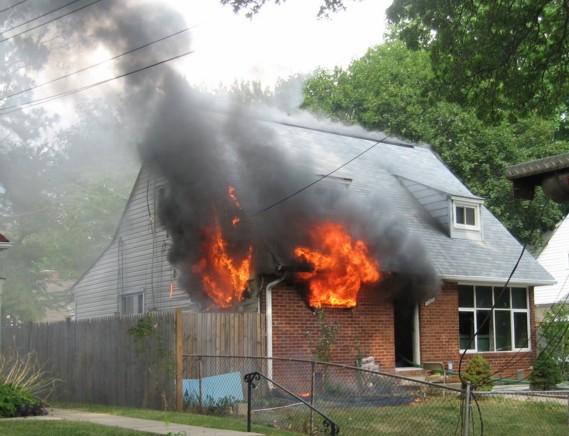
(Source)
Let's Adore Jesus-Eucharist! | Home >> Varia >> Bachelor's Kit

(Source)
Usage scenarios are what drives the design and construction of the "Bachelor's Kit", but they also help us test it to make sure everything works as planned.
In theory, if I respected the design method, I'd list here the most representative scenarios of use. For example, we could have scenarios like "Waking up and getting ready to go to work", or "Cook supper", or "Doing the week's laundry", etc. It's not that these scenarios are irrelevant, on the contrary! It's just that they are all very well known by everybody, so I don't insist on them. We know the "Bachelor's Kit" has to help us live in those scenarios.
It doesn't make much sense to build a "Bachelor's Kit" for ordinary circumstances only. If you have plenty of time and money, and you never have any problems, then any approach to your material life will work! What we want is something that will also perform well under more difficult circumstances.
Another way of explaining this is to use "Risk Management" or "Disaster Preparedness" jargon. You want to make a list of risks to your material life, evaluate the probability of them happening as well as the damage that would result if they did, and finally you want to "mitigate" those risks. A third way of saying the same thing is: "Hope for the best, plan for the worst".
Here are some typical risks, or worst-case scenarios:
3.1) You lose your job. For whatever reason, you lose your source of income.
3.2) You need to move far away and quickly. For example, you need to evacuate your apartment quickly and permanently because a accident in a nearby chemical plant, or a hurricane, or a flood, etc. This scenario is divided into at least three "sub-scenarios", depending on how much time is given to you (say for example, thirty seconds, or thirty minutes, or thirty hours).
3.3) Some or all Public Utilities stop. For example, an ice storm causes a power outage that lasts for weeks, or something contaminates the water supply, etc.
3.4) The whole place burns down. You come back from work, and your apartment is razed by fire. All you have left are the clothes on your back.
3.5) Somebody steals all your data. For example, your computer is stolen by criminals who will try to steal your money and harm you, using your confidential data.
3.6) Criminals invade your home while you are in it. Why should criminals work hard to rob you? They can just kick down your door while you're sleeping at night, then threaten to kill you, then have you hand them your money, your car keys, your bank PIN number, etc.
3.7) You become mentally or physically incompetent. Whether because of old age, or head trauma sustained in a car accident, etc. You keep on living, but you can't work or even take care of yourself.
Until you've tested your "Bachelor's Kit" in fairly realistic conditions, assume you don't really have a kit. Scenarios can be classified roughly in three "testing categories": self-testing, testable-in-thought only (what Albert Einstein called "Gedankenexperiment"), and finally testable with a bit of effort and planning.
The "Ordinary scenarios" will be tested everyday, just by living your life, so they are "self-testing". At the other extreme, some of the "Worst-case scenarios" are testable only by "thought-experiments" (like being in a serious car accident and becoming a quadraplegic, etc.). But it's not because something can only be tested in a "thought-experiment" that you shouldn't perform that "thought-experiment"! You still need to test your preparedness!
The third category of scenarios can be at least partially tested in more realistic conditions. Some examples to jog your imagination:
4.1) Moonlight Run (quick bug-out). Ask somebody to sneak into your room while you're not there, to hide an alarm clock set to go off during the night. When it goes off, you can imagine that the place is on fire, that the electricity has been cut off, and force yourself to be outside in less than three minutes. Then force yourself to travel to a safe haven, far away from the disaster.
4.2) Unpleasant Camping Trip (slow bug-out). Here again, you need to ask somebody to choose a random day in the month, so it will take you as far as possible by surprise. They call you, and right away you start a timer, because you need to be out of the house in less than three hours. You pack as much as you can, leave with whatever you've managed to pack, and go live as far away as you can (in the middle of a woodlot somewhere), for as long as you can.
4.3) All Networks Down (bug-in). Just shut off everything. Close the input valve for the city drinking water supply, close the main breaker for electricity for your house, shut off the Internet, put your car keys in a jar labeled "No Petroleum Products In The Distribution Network Anymore" or something, same for the grocery store (food distribution network), same for your micro-electronic devices (yes, you got that right, your smart phone, your laptop, etc. Wrap a ring of masking tape around them, with "EMP strike" written on it), and so on. Then, see how long you can last with whatever you have in your appartment!
Etc.
Let's Adore Jesus-Eucharist! | Home >> Varia >> Bachelor's Kit